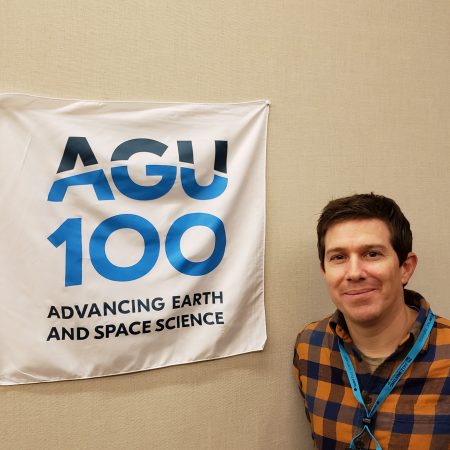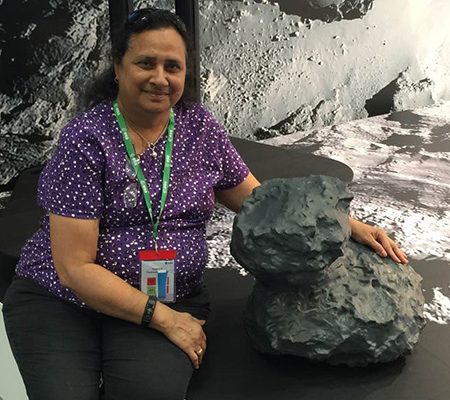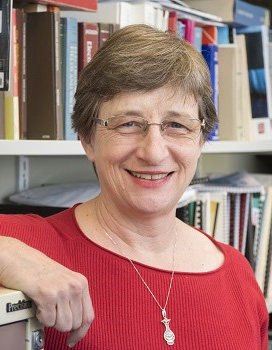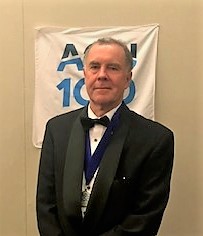Refine
Date Range Clear
Recorded by Clear
Keywords Clear
- Long Beach California 57
- Community 24
- Concordia 57
- Concordia College 57
- Army National Guard 57
- Concordia College Moorhead 57
- Brutal 57
- Rodney King Trial 57
- Curfew 57
- Scary 57
- Advice 29
- Collaboration 24
- #AGU100 57
- #AGU 56
- discovery 26
- NASA 25
- #womeninscience 11
- career path 8
- planetary 8
- changing planet 6
- collobration 6
- data 6
- Climate 4
- 225 more
Partnerships Clear
Organizations Clear
- American Geophysical Union 16
- National Aeronautics and Space Administration 2
- The American Geophysical Union 2
- Ameican Geophysical Union 1
- American Geophsyical Union 1
- 9 more
Places Clear
- Washington DC 65
- AGU 2018 Fall Meeting 54
- AGU Fall Meeting Program Commitee 2
- Leadership Development Commitee 2
- AGU 1
- 10 more
Languages Clear
Initiatives Clear
James Butler has studied atmospheric chemistry, ozone depletion for over thirty years. Now, as the Director of NOAA’s global monitoring, he helps direct research into the hole in the ozone layer and climate change. He knows firsthand that we have...
Krystal Yhap’s interest in urban water resource management was sparked by the conversations around water safety in Flint, MI. She’s now a graduate assistant at the University of Maryland studying the water system in San Francisco. She talks about her...
Sandra Cauffman was told growing up in Costa Rica that she couldn’t be an electrical engineer because she was a woman. Decades into a career which has largely involved getting her hands dirty building instruments to fix on spacecraft, the...
How did Biogeoscience become a recognized field of study, with its own journal and sections at AGU? What obstacles did its organizers have to overcome in order to make it a viable field and a welcome presence at AGU? In...
The next time you see a young kid skateboarding through the neighborhood, possibly listening to punk rock on their earbuds, remember that one day that kid could be your local science professor. Doug Jerolmack’s sturdy voice and love of experimenting...
Erin Robinson is the Executive Director of the Earth Science Information Partners (ESIP). She knew from early on that she was interested in science and her field of remote sensing, from good science teachers in middle and high school to...
Padma Yanamandra-Fisher, a research scientist at the Space Science Institute, shares stories of her career in planetary science. She recounts how defining the launch of Voyager was and the significance of the growth in the field since. Padma shares her...
Eager to get out of the lab, Martha Savage spent the year immediately following her undergraduate graduation at the Amundsen-Scott South Pole Station where she worked as a cosmic ray observer. In this position, Dr. Savage, who is now a...
It took 21 years for Trevor McDougall to leave Australia, but when he did, he was on a plane headed to the University of Cambridge and a masters and Ph.D. in Oceanography. Besides the life-changing event of going from one...
Michael Freilich, Director of NASA's Earth Science Division, shares about his life studying the oceans and Earth as a system. While still in his high school's oceanography club, he started exploring a question about how waves move that later became...

![“I'd love to see more collaboration happen and [it is] integral in terms of science working in the future.” An interview with Krystal Yhap](https://archive.storycorps.org/uploads/2019/07/Headshot-KYhap-450x450.jpg)







!["I joined an Oceanography club & actually asked the question that ended up [being] my thesis." an interview with Michael Freilich](https://archive.storycorps.org/uploads/2019/02/181212_Freilich-450x450.jpg)